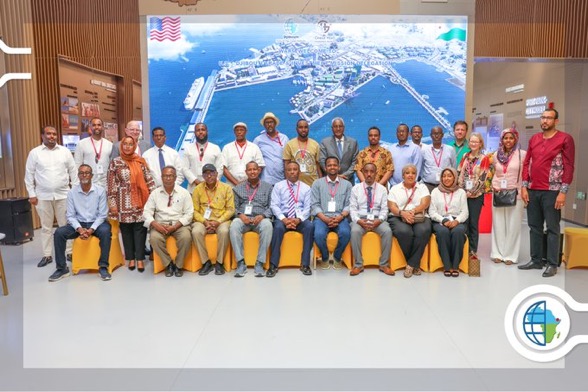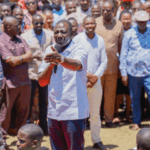DJIBOUTI CITY, Djibouti — A U.S.–Djibouti Trade and Investment Mission concluded on Saturday, aiming to strengthen economic ties and explore investment opportunities in key sectors such as logistics, renewable energy, and information technology.
Organized by the Minnesota Institute of Horn of Africa Studies (MNIHAS) in collaboration with the Embassy of the Republic of Djibouti in Washington, D.C., the mission brought together U.S. business leaders, diaspora entrepreneurs, and state officials from Minnesota, Ohio, and Washington.
The delegation engaged with Djiboutian government officials and local business leaders to discuss potential partnerships and investments.
During the visit, the delegation toured strategic infrastructure sites, including the Doraleh Multipurpose Port and the Djibouti International Free Trade Zone.
According to officials, these visits provided insights into Djibouti’s role as a gateway to East Africa’s 400-million-consumer market.
Ambassador Mohamed Siad Doualeh, Djibouti’s Permanent Representative to the United Nations and Ambassador to the United States, emphasized Djibouti’s commitment to deepening economic partnerships with the U.S., stating that the country is a strategic hub for innovation, logistics, and regional development.
The mission also focused on empowering the East African diaspora in the U.S. by facilitating connections with emerging opportunities in Djibouti.
Representatives Samakab Hussein and Cedrick Frazier of Minnesota highlighted the importance of such initiatives in fostering sustainable partnerships that benefit both American businesses and workers.
Participants expressed strong interest in investing in sectors including renewable energy, tourism, medical facilities, and real estate.
Djibouti’s strategic location, political stability, and business-friendly environment, including zero taxes for exports and 100% foreign-owned foreign direct investment policies, were cited as key factors attracting U.S. investors.





